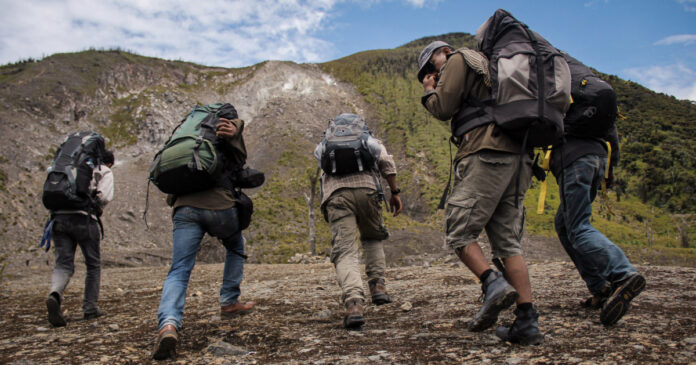I’ve seen several articles on how younger Americans are preparing for a disaster scenario because they fear the aftermath of the 2024 election. This article reports on a survey that shows 29 percent of Millennials and 40 percent of Gen-Zers spent money on prepping in the past year.
Good for them. The more people who prep, the better. It doesn’t even matter why they prep; prepping for one scenario will usually help for any other scenario, as many of us found out when COVID-19 hit. So if they prep because they fear a Donald Trump election, those preps will be available to help them if there is an earthquake, a terrorist attack, or another disaster.
The Best Age to Start Prepping
I started to seriously prep about age 30, but you will read about teenage preppers who often started because they were in the Boy Scouts or had they lived through a disaster. In my opinion, if you are not currently prepping, then the best age to start is whatever age you are right now.
My prepping started off by making sure I had some extra infant formula and basic foods at home in case of an emergency, but it became more hardcore when the Y2K bug threatened to screw up computers nationwide. I’ve been a serious prepper ever since. While Y2K was a non-issue, 9/11, the anthrax attacks, and the wars in Iraq and Afghanistan followed it. I never felt my preps were a waste of time or money.
As I say under Our Philosophy, “prepping is a journey, not a destination. It is many small steps take over the years.” So we can hope these younger preppers will continue to prep and become more prepared over the years.
In fact, building your preps over time is the best way to become well prepared. Prepping is expensive, so unless you are wealthy, it takes time to accumulate all the preps you need. By spending a few dollars a week, prepping over time allows you to slowly achieve your objectives. Time also allows you to develop skills, take classes, and refine your personal prepping philosophy.
As your life changes, your preps will evolve, too. You may go from prepping for yourself to prepping for yourself and others. In my case, we went from plans to bugout with to a farm owned by someone in our prepping group, to bugging out to a retreat owned by a family member, to moving to a prepper property full time. Now our place is the destination where others will bugout, including one family from our old prepper group.
Prepping in Phases
I think it is natural to go through prepping phases over one’s prepping journey. This is driven by two things: the perceived threat and our interests. At first, preps may revolve around bugging out, developing “the best” bugout bag, and stocking some gear you can throw in the car to get out of the city. Many preppers go through a pantry-building phase when they stock up on food storage, both traditional grocery foods and long-term storage food. Some may even get their own freeze dryer. Others focus on their defensive capabilities, building their armories and stockpiling ammunition. I not only stockpiled ammunition, I learned to reload and stock powder, primers, and bullets.
You might even reach a point where you do your financial and retirement planning with a prepping perspective. This could include life insurance or buying precious metals. It might include investing in real estate or other tangible assets.
After a decade, a prepper who has lived through several phases of prepping might find they are a well-balanced prepper, with a plan to bug in, an alternate plan to bugout, a significant amount of food storage, and a sufficient collection of tactical gear to help keep them safe.
You might experience a phase or two in which you are too busy with life to actively prep. I know that happened to me a few times, but it was always in the back of my mind, and I always came back to prepping in the end.
A Driving Force
At some point, preppers young and not-so-young have to decide what role prepping will play in their life. Let’s say that you are a project manager. Are you going to be a project manager who preps on the side, or will you be a prepper who happens to be a project manager? In other words, is prepping going to be the driving force in your life, and will you make decisions through a prepping lens, or will you live your life normally and have a few “just in case” preps?
I tried to strike a balance, but in the end, prepping won. I left New York city for preparedness reasons and later refused to relocate to California. (One of the best decisions I ever made.) Instead, I looked for jobs that allowed me to move to smaller cities. I bought houses that were outside the city limits, sometimes even outside the suburbs. I went on vacation to places where we could scout the area out for a possible prepping destination. Even my friend group was made up of preppers and shooters, LEOs and veterans.
So a big welcome to all the Gen-Z preppers out there building their first bugout bag and buying their first folding saws, headlamps and water purifiers. Whether prepping becomes a hobby or a way of life, we’ll look for you on the other side of the major SHTF event, regardless of what it is. The preppersphere and society can use you.







